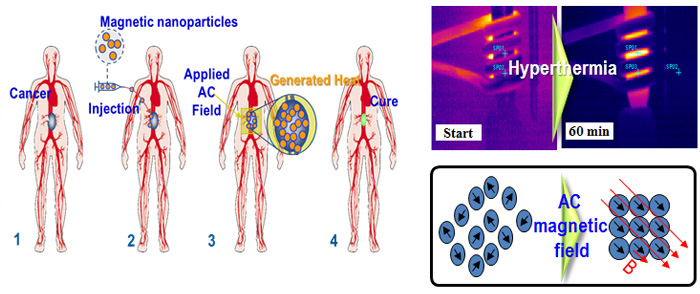Bio Materials
Magnetic nanoparticles
Magnetite (Fe3O4) nanoparticles have been explored for various biomedical applications that include their use in cell labeling/cell separation, magnetofection to facilitate gene delivery, as contrast agents for magnetic resonance imaging (MRI), to induce local hyperthermia in response to an external alternating magnetic field to selectively destroy cancer cells, and as a magnetically targeted carrier system in drug delivery applications. Heat generation by magnetite nanoparticles is dependent on particle size, crystallinity and particle dispersity. Magnetite nanoparticles tend to aggregate due to strong magnetic dipole-dipole attractions between particles having a high surface area and are of larger sizes posing serious practical limitations. In the study, we have been investigated the surface modification on colloidal stability with magnetite nanoparticles for hyperthermia.

